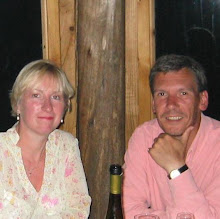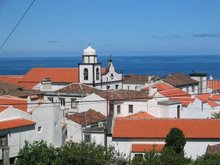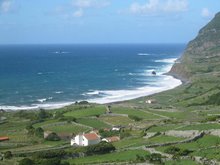"In the 18th century, Edinburgh’s fine architecture and its Enlightenment role earned it the nickname “Athens of the North”. It would be a shame if that name became apt again for less positive reasons."
That may need some explanation for non-British readers.
The Economist is a British weekly news magazine that believes everything from climate change to global poverty can be solved by democracy and the unrestrained application of the free market. Edinburgh is the capital of Scotland, the autonomous regional government of which is now dominated by the Scottish National Party (SNP). It wants to hold a referendum about whether Scotland should secede from the United Kingdom. The Economist is agnostic about Scottish independence except in so far as it affects the economies of Scotland and the remainder of the UK (England, Wales and Northern Ireland). Athens is the capital of Greece, a country that's economically up a certain creek without a certain instrument.
A central plank of the SNP's economic argument for Scottish independence is that the UK's oil reserves in the North Sea are all off the coast of Scotland so would become Scottish in the event of independence. The British government's riposte is that, if you're going to play at that juvenile sort of game, you can have the Royal Bank of Scotland's £187 billion worth of toxic assets we (the British government) picked up the tab for in 2008. And we'll withdraw the Royal Navy's atomic submarines from their base in Scotland leaving an unemployment blackspot that would make a nuclear winter look quite cosy by comparison.
Again for non-British readers, that's the leader of the SNP, Alex Salmond. He's got up to look like MacBeth, an 11th century king of Scotland about whom a famous English playwright, William Shakespeare, wrote a play. A scene in the play has MacBeth unable to wash his hands of the blood of his predecessor ("Out damned spot") his ambition compelled him to murder.
Back to the point, who would bank on North Sea Oil nowadays? At current oil prices, the recoverable reserves in the North Sea are almost finished while the cost of decommissioning the rigs and pipes and what have you has only just started. If all the kit isn't humanely disposed of, it will start washing ashore in Arbroath and you'll have dirty Greenpeace types setting up camp and piddling in St Andrew Square again. The economics of North Sea Oil look like this:-
As I understand it, the British government has agreed to bankroll decommissioning through tax breaks so the oil barons are frantically dragging their rusty old toot out of Scottish waters as fast as they can. It's all totally x + y = 0 unless the price of oil soars due to another "oil shock" such as Israel nuking Iran. That probably explains why you won't be able to get over to Rothesay this summer - Salmond's got the entire Caledonian MacBrayne fleet patrolling the Straits of Hormuz waiting for the balloon to go up (although doubtless there will be a disappointment when the MV Isle of Eigg's ramp doesn't fit the slipway at Bandar Abbas any more than it does at Eigg).
 |
| Mind how you go with these nukes now, Lachie! |
Of course Fat Eck isn't putting all his eiggs in the oil basket. Oh no! Due to Scotland having totally bogging weather, he's pinning a lot of hope on Scotland becoming "the Saudi Arabia of renewable energy". (This quote explains why the SNP has become known in certain quarters as "the House of Ibn-Salmond".) You mean all these windmills and that wave machine off Ultima Thule that keeps breaking down ...
The picture above is of a landmark in Edinburgh. I can't remember what it was supposed to be for but it was never finished and it's known as "Edinburgh's Disgrace". I do know it was modelled on the Parthenon. Be careful what you wish for ...









No comments:
Post a Comment